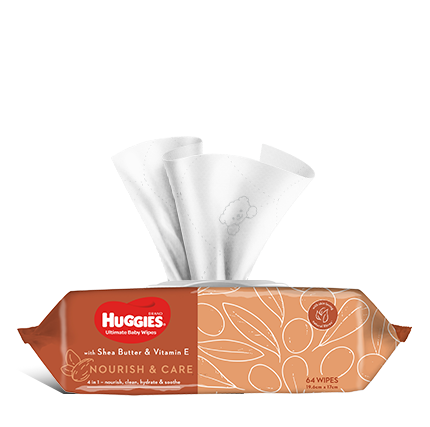What is Teething?
Teething is when teeth first emerge from a baby's gums. This is also known as cutting or erupting teeth. Most babies start the teething process between the ages of a few months old to when they are one year of age. There is no one consistent age when babies get their first teeth.
The first baby teeth to erupt are usually the bottom front teeth, the central incisors, followed by the front upper teeth. Most toddlers complete their teething and have a full set of teeth (20), by around the age of 3. These teeth are usually present until they start being lost at around six years and the adult teeth start to erupt.
Baby teething is often seen as the cause of a variety of baby health and behaviour issues. Teething can cause a range of changes but should not be blamed for any health-related problems in a baby or small child.
Teething is a normal developmental stage and most children progress through the ages and stages of teething without any major issues. Teething does not cause fever, diarrhoea, colds, coughs or ear infections.
However, teething may be accompanied by the following symptoms:
- Excessive biting
- Drooling/dribbling more than usual
- Wanting to suck more
- Irritability
- Changes in appetite
- Nappy rash
What can I do to soothe my teething baby?
There is nothing you can do to accelerate the teething process but you can support your baby to be as comfortable as possible when they are teething.
Giving your baby something to chew on, like a cold washcloth from the refrigerator may ease the teething discomfort your baby is experiencing. Some babies like to chew on teething rusks and soft toys which they can bite down on. You can offer your baby a teething rusk from around six months of age, once they can hold this in their hands and bring the rusk to their mouth. Rub the pad of your (clean) thumb against their gums if they seem to be bothered by teething.
Settling periods can be difficult when a baby is teething. You may want to speak with a pharmacist about pain relieving medication which could help your baby's discomfort. Teething gels can also be helpful. Always use teething medications and gels as recommended by the manufacturers.
You may experience a few sleepless nights when your baby is teething, though perhaps your baby won t be bothered at all. Every baby is unique.
For remembering special baby milestones, Huggies has a great baby teething chart where you can record when each tooth erupted and any of your teething memories.
Baby teeth care
You need to start taking care of your baby's teeth as soon as the teething process has started and the first tooth erupts. At first, use a soft cloth to clean their gums, bath time is a good opportunity to remember.
As their teeth erupt, clean them twice each day with a soft, children s, small headed toothbrush. From the age of 18 months, use a children's (fluoridated) toothpaste. Check the Huggies water and fluoride section so you can make an informed decision about supplementing your child with extra fluoride.
There are often more questions than answers regarding baby teeth care and in particular concerning teething. Questions like How should I clean their teeth or gums? and Are there any hints on how to make the experience stress free? are both answered by our Huggies teeth care experts.
Importantly
Take your baby to the dentist when their first tooth is visible or, when they reach 12 months old, whichever comes first. Make sure that the dentist you go to is registered practitioner.
Preventing tooth decay
Teething brings with it a range of new issues and potential problems, a major one being tooth decay. Now that your little one has teeth, you need to be mindful of caring well for them. Unfortunately, many foods can increase the risk of tooth decay, particularly sweet, sticky foods which adhere to their teeth. Huggies has created a great resource on preventing tooth decay, where you can find out more about snacks which are less risky to your little one's teeth.
Be mindful of your own dental hygiene and see your dentist every six months. If you have active decay, you are more likely to pass onto your child the bacteria which cause tooth decay. Avoid blowing on their food to cool it, kissing your child on their mouth or sharing spoons and eating utensils. Brush your own teeth twice each day, floss at least once per day and pay careful attention to your oral hygiene.
For more information about Baby Teething Baby Health Care
https://www.huggies.com.au/baby-care/health-and-care
Reviewed and updated by Jane Barry, Midwife and Child Health Nurse, March 2024.


Last Published* May, 2024
*Please note that the published date may not be the same as the date that the content was created and that information above may have changed since.

















